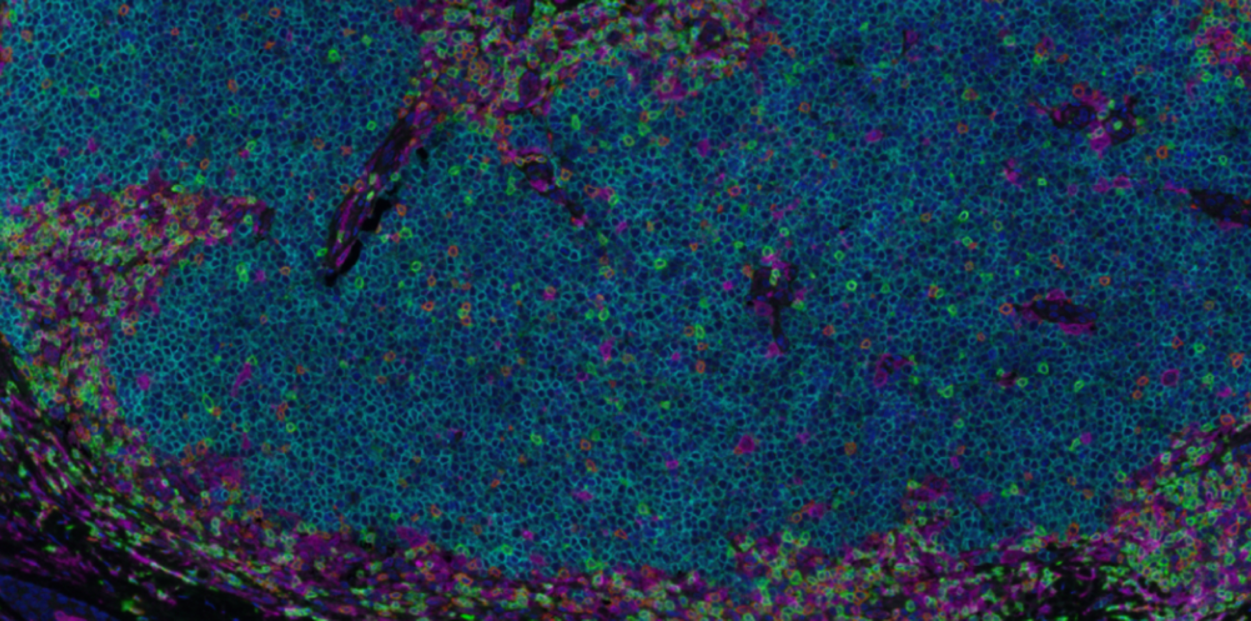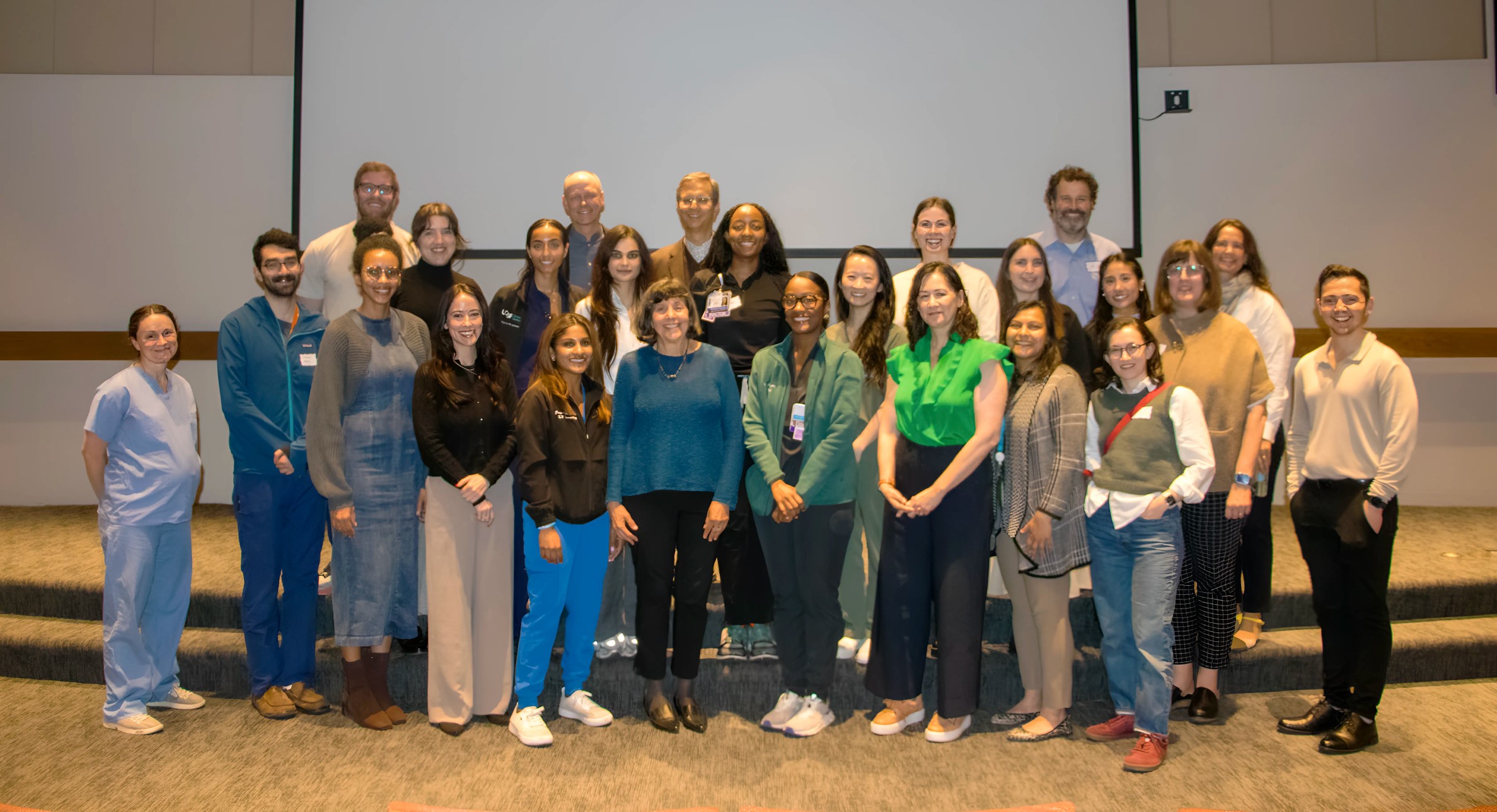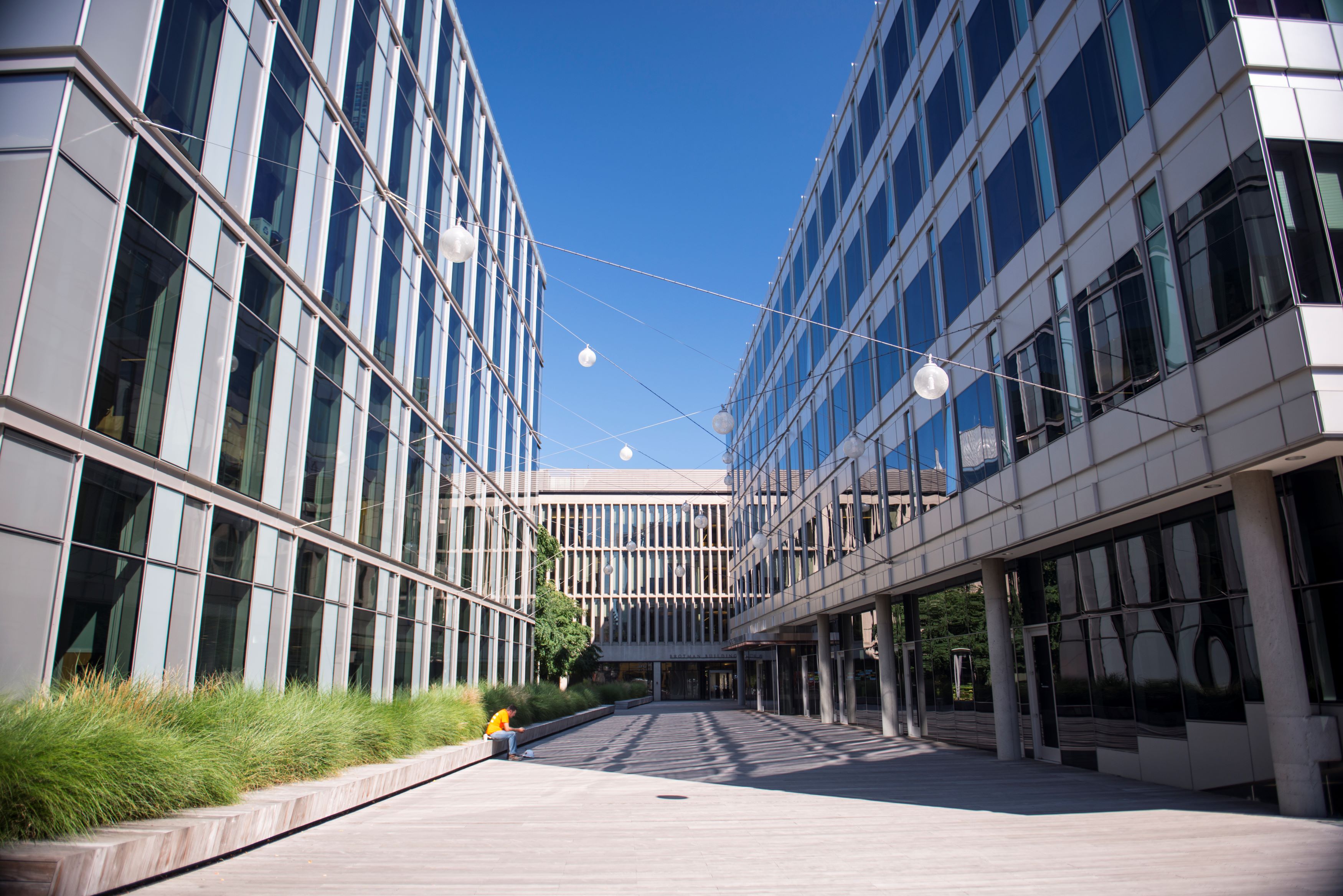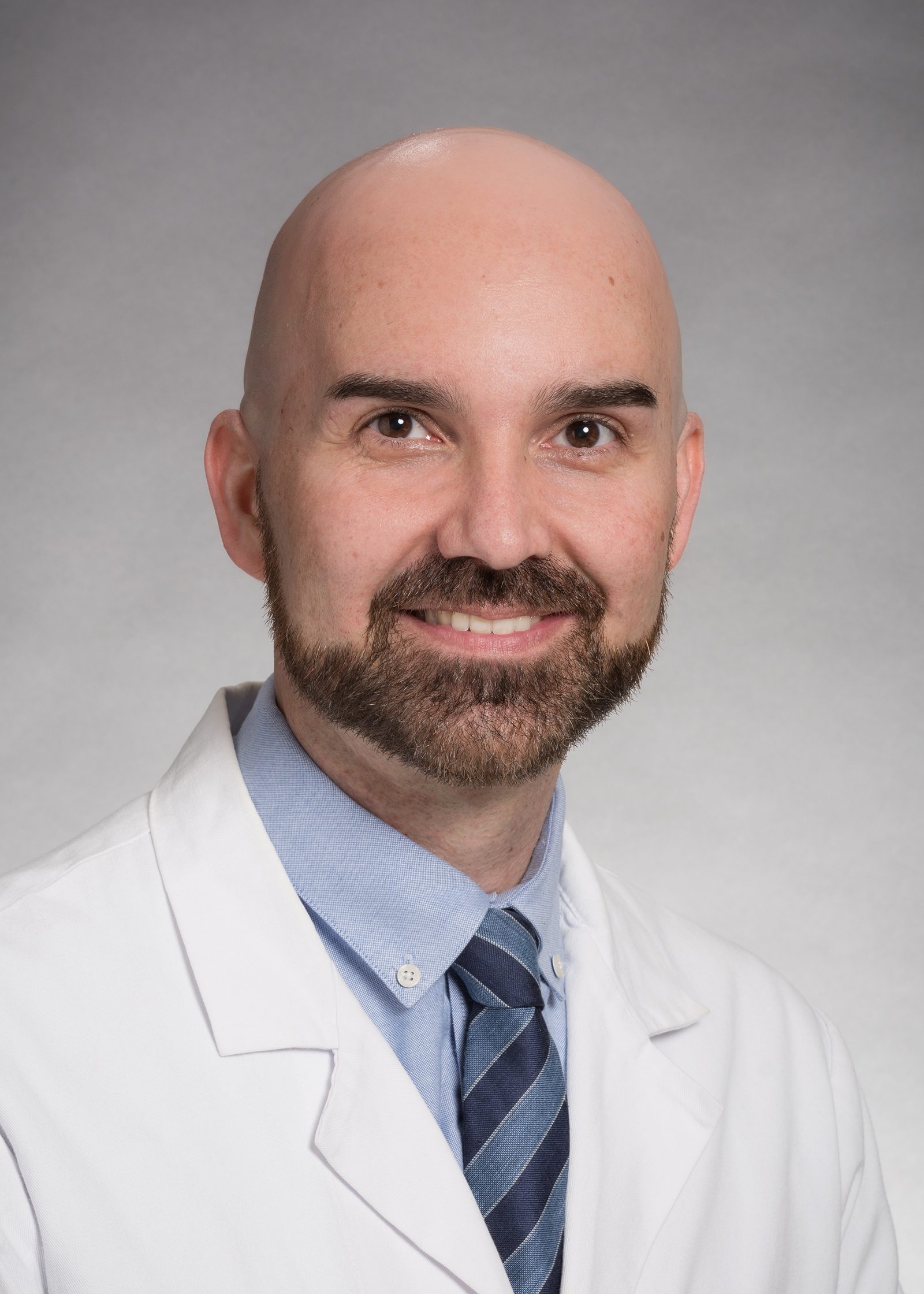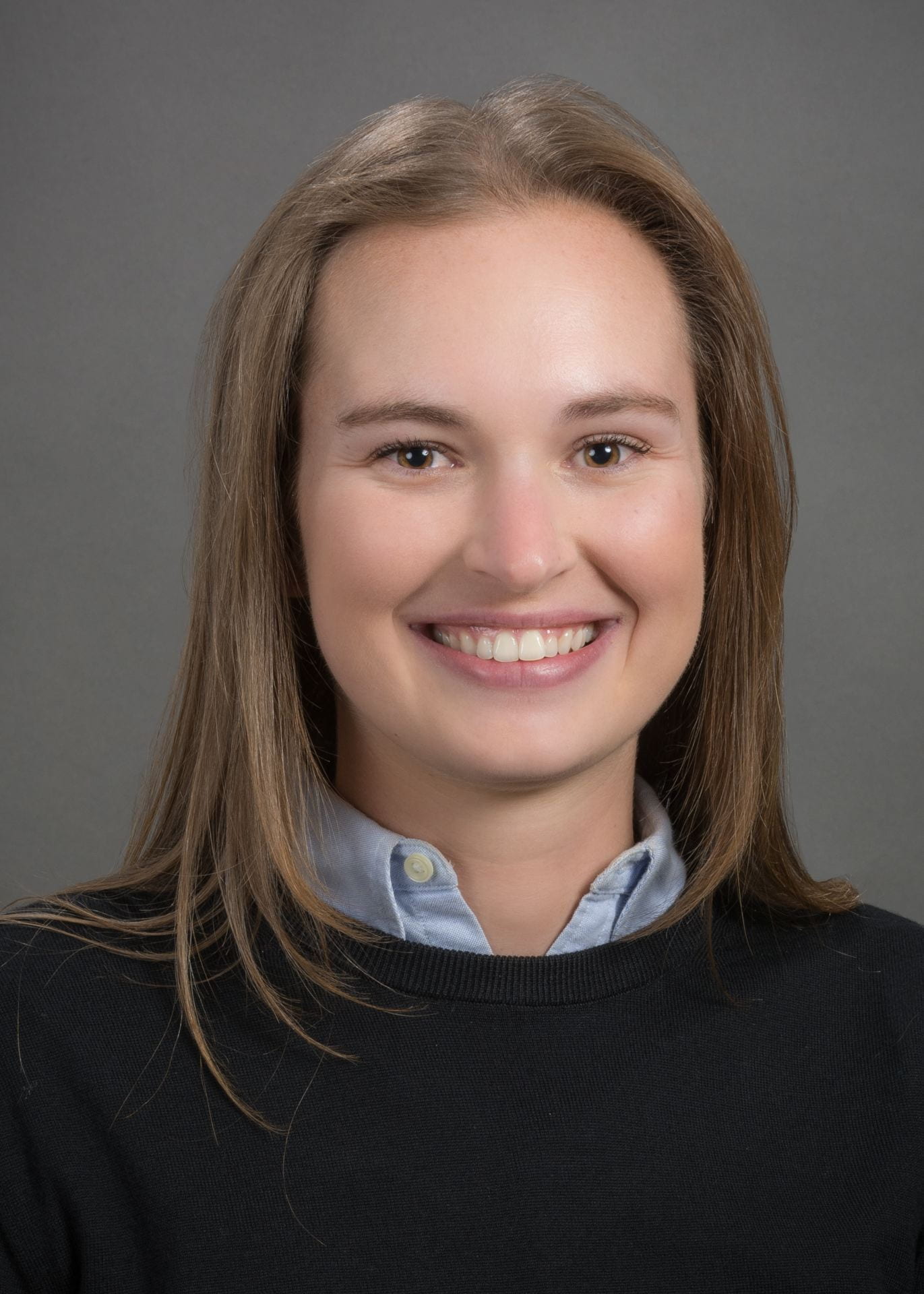Dr. Cory Simpson Joins UW Dermatology, Launches the Simpson Lab
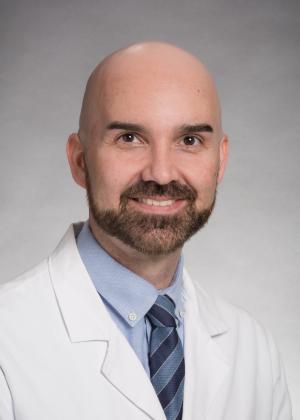
 As a wide-eyed undergrad at Washington University in St. Louis, Mo., Cory Simpson, MD, PhD, FAAD, (he/him/his), could never have imagined his first summer job after freshman year would set him on a trajectory toward a distinguished career as a physician-researcher and ignite his passion for combining cell biology research with the practice of medicine.
As a wide-eyed undergrad at Washington University in St. Louis, Mo., Cory Simpson, MD, PhD, FAAD, (he/him/his), could never have imagined his first summer job after freshman year would set him on a trajectory toward a distinguished career as a physician-researcher and ignite his passion for combining cell biology research with the practice of medicine.
“I remember my first job in a research lab was making food for fruit flies,” says Dr. Simpson, who worked as a student researcher in the lab of Dr. Sally Elgin, a leader in the cell biology community and renowned biochemist and geneticist who used the fruit fly, Drosophila, as a model organism. “It wasn’t a glamorous task, but you had this idea that you were participating in some sort of critical discovery; and it taught me the importance of careful methodology to make sure the science is reliable.” This early exposure to biomedical research introduced Dr. Simpson to the physician-scientist career path.
Nearly 20 years after his first research position, this past fall Dr. Simpson joined the UW Division of Dermatology as an Assistant Professor and launched his own independent wet lab at the UW Medicine Research Facility on the South Lake Union campus.
The Simpson Lab will continue Dr. Simpson’s pioneering research in epidermal differentiation to understand how the outermost skin barrier tissue is compromised in dermatologic disease. Ultimately, Dr. Simpson’s research group will work to identify novel strategies to promote epidermal tissue regeneration after skin injuries and to test treatments for inherited dermatologic diseases that he can model in the laboratory.
The Simpson Lab is one of three UW Dermatology research labs including the Nghiem Lab, headed by Dr. Paul Nghiem, and the Kamasumi Lab, headed by Dr. Masaoki Kawasumi.
Much like his experiences as a novice researcher, Dr. Simpson hopes to create a lab environment similarly rooted in collaboration and mentorship; where researchers of all backgrounds and ages can contribute ideas, explore through experiments, learn from each other, and discover their own scientific interests.
“I think it’s really exciting to be able to invest in the next generation, whether it’s a medical student who wants to become a physician, or an undergraduate who may go on to do something else,” says Dr. Simpson. “I want our space to be fertile ground for diverse ideas and to give people the tools they need to critically analyze a problem and come up with a solution. These skills are essential regardless of what career you choose to pursue.”
A native of Granite City, Ill., and coming from a family of public school educators, Dr. Simpson received his bachelor’s degree in Biology and a minor in Spanish (Summa Cum Laude) from Washington University. He earned his MD and PhD in Cell Biology through the Medical Scientist Training Program at Northwestern University in Chicago. Guided by his thesis mentor, Dr. Kathy Green, he was drawn to the field of dermatology through his research on desmosomes, adhesive cellular structures that are targeted in several skin blistering disorders.
Prior to coming to UW, Dr. Simpson served as a dermatology resident and chief resident at the Hospital of the University of Pennsylvania in Philadelphia. To learn advanced methods in cell biology and live microscopy, he then completed a post-doctoral fellowship in the Department of Physiology with Dr. Erika Holzbaur at the University of Pennsylvania before relocating with his wife, Stephanie, to Seattle in October 2021.
During his research fellowship, Dr. Simpson was also a Clinical Instructor at Penn’s Perelman School of Medicine in Philadelphia. There, he built a subspecialty dermatology clinic focused on patients with inherited and autoimmune blistering disorders, which were directly related to his prior lab experience and will remain his clinical focus at UW.
In addition to being the principal investigator for the Simpson Lab, Dr. Simpson will also treat patients as a board-certified dermatologist at UW Medical Center's Roosevelt Dermatology Clinic beginning in January 2022. Dr. Simpson’s clinical expertise includes skin blistering diseases such as pemphigus and pemphigoid as well as genetic skin barrier disorders such as ichthyoses and Darier disease.
One of the more unique aspects of the Simpson Lab is Dr. Simpson’s use of an organotypic model of human skin, where multi-layered skin tissue is grown in the lab to replicate the appearance and functionality of the human epidermis, a thick outer layer of skin that protects the body. Coupled with advanced 3D microscopy, the Simpson Lab can visualize the live tissue at the level of single organelles to better understand how the epidermis forms and how disease-associated mutations disrupt the tissue. Skin cells that are genetically reprogrammed to mimic human diseases, for example using CRISPR gene editing technology, allow researchers to test drug compounds in hopes of finding strategies to promote epidermal tissue regeneration or to effectively treat inherited skin diseases that remain incurable to date.
“A lot of my time as a physician-researcher will be figuring out how to take what we learn from patients in a clinical setting and translating that into our research in the lab environment,” says Dr. Simpson. “We can reform and refine our experiments so that they're more clinically relevant, and ultimately impact the way we treat patients.”
Not unlike starting up a small business, since joining the Division of Dermatology Dr. Simpson has already hit the ground running preparing his lab, ordering equipment, meeting fellow researchers, building his team of scientists, and developing an online presence though Twitter.
Looking ahead, Dr. Simpson hopes his burgeoning lab will one day develop a steady stream of funding through the NIH, research foundations, and even private investors. He looks forward to presenting his work at scientific conferences, which provide important networking opportunities for young investigators. Dr. Simpson has attended the annual meeting of the Society for Investigative Dermatology since graduate school and will serve on its Committee on Scientific Programs after completing a term on its Diversity and Inclusion committee in 2022. Above all, he is committed to making the Simpson Lab an inclusive, collaborative environment where researchers at any stage of their training can come together to learn, develop research skills and find their career path.
“Just as important as the science we do, are the people that make the science happen,” says Dr. Simpson. “I want to open up avenues of opportunity for folks, and develop an environment that provides not only just the supplies and the tools that they need, but the guidance, mentorship and teaching that they need to really excel in a scientific space.”
Welcome to the University of Washington, Dr. Simpson!
To learn more about Dr. Simpson's research, please visit the Simpson Lab website.
Follow Dr. Cory Simpson and the Simpson Lab on Twitter for the latest research and updates.
Dr. Cory Simpson (@CorySimpsonMD) | Simpson Lab (@SimpsonLabUW)



